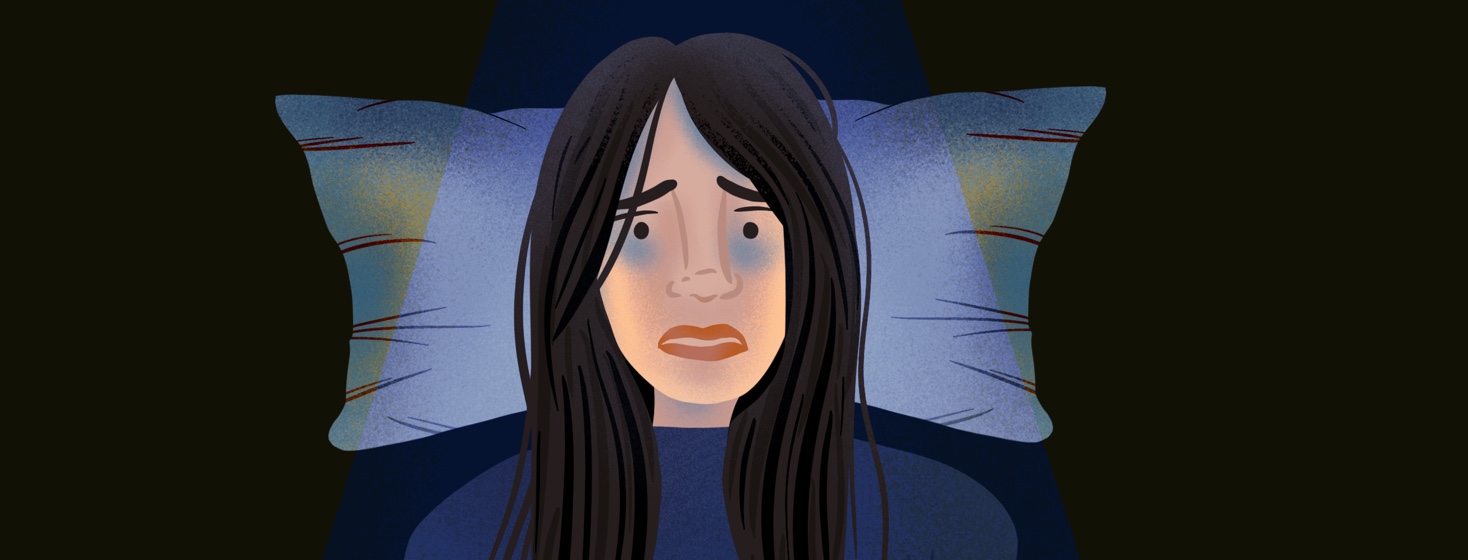Schizophrenia and Sleep Paralysis
Many people with schizophrenia have sleep problems. This can make it harder to fall asleep or stay asleep, resulting in bad sleep quality. One condition that reduces sleep quality is sleep paralysis.1,2
What is sleep paralysis?
During a full night of sleep, your body goes through a few sleep cycles. Each cycle is made up of 4 stages of sleep.2,3
The last stage of a sleep cycle is called rapid eye movement (REM) sleep. REM sleep is a phase of sleep in which you enter a dream state. During REM sleep, most of your voluntary muscles become temporarily paralyzed. This is a protective mechanism to prevent you from acting out your dreams and potentially harming yourself.2,3
Sleep paralysis occurs when a person is temporarily unable to move or speak while falling asleep or waking up. A 2023 study found that, in general, about 8 percent of people have experienced sleep paralysis at some point in their life.2,3
This or That
Have you experienced sleep paralysis?
What does sleep paralysis feel like?
Sleep paralysis can occur while you are falling asleep or right after you wake up. It usually only lasts a short time – a few seconds to a couple of minutes. But even so, it can be a frightening experience, especially if you are not familiar with what is happening.4
During sleep paralysis, you may be conscious and aware of your surroundings. For example, you can breathe and see things. But you find yourself unable to move any part of your body despite efforts. In addition, some people may hear, see, or feel things that are not there.4
Hallucinations and sleep paralysis
Hallucinations are experiences that seem real but are not actually happening. They can involve seeing, hearing, feeling, smelling, or even tasting things that are not there.4,5
There are 2 types of sleep-related hallucinations:4,5
- Hypnogogic hallucination – happens when a person is falling asleep
- Hypnopompic hallucination – happens right as a person is waking up
Both types of hallucinations are common during sleep paralysis. They are generally nothing to be too worried about. As your brain is shifting from being asleep to being awake, you are more likely to hallucinate. This can make sleep paralysis even more scary. Just know that it will pass as you fully wake up.2,3
There are some things that people see, feel, or hear that are more common during sleep paralysis. They might be:2
- Feeling pressure on your chest
- A sense that you are moving
- Believing that there is an intruder nearby
Schizophrenia and hallucinations
Some mental illnesses can make it more likely for sleep paralysis to happen. About 15 percent of people with schizophrenia experience sleep paralysis. Sleep paralysis can be harder to diagnose in people with schizophrenia. This is because schizophrenia itself can also cause hallucinations.1-3
The chances of having hallucinations during sleep paralysis can depend on a variety of things, like:1,3-4
- Not getting enough sleep
- Not having a regular sleep schedule (that is, going to sleep during the same hours every day)
- Having other sleep-related illnesses that cause poor sleep
Treatment options
Sleep paralysis can greatly reduce the quality of your sleep. And sleep is closely related to health. So bad sleep quality can have negative effects on different parts of your life.1
Generally, good sleeping habits can help with sleep problems. Good habits include staying active during the day and maintaining a regular sleep schedule.1
If you are having sleep paralysis regularly, talk to your doctor. Some drugs used to treat schizophrenia can put you at a higher risk for sleep paralysis. Your doctor can recommend trying a different drug or dosage.2
Planning for an episode
Cognitive behavioral therapy (CBT) has also been used to treat sleep problems. This type of therapy focuses on changing negative thoughts and behaviors. The idea is to change any unhelpful thoughts about sleep and build healthy sleeping habits to improve sleep quality.1,2
During CBT, you can also work with your therapist to come up with a plan for what to do during an episode of sleep paralysis. This can help you feel prepared and be less scared of having another episode of sleep paralysis. For example, some people may find it helpful to focus on making a small movement (moving a finger) to get out of sleep paralysis.4
Treating sleep problems can greatly improve your quality of life. In cases where sleep problems are linked to a mental illness, treating sleep problems can also reduce the symptoms of the mental illness.2

